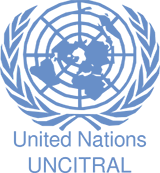
HOW TO INCORPORATE A COMPANY IN BRAZIL
7 de December de 2021
BRAZIL IS A CISG MEMBER STATE: WHAT DOES IT MEAN AND WHAT IS THE IMPORTANCE OF IT FOR INTERNATIONAL TRADE
14 de January de 2022How do you solve a dispute? When a problem arises in a contract, what are the option on the table? If a foreign company signs a contract with a Brazilian party and the deals go south, how one may handle the matter? This is the topic we will address today in our blog.
There are different ways to solve disputes in Brazil – mainly, negotiation, mediation, state court litigation and arbitration.
1. NEGOTIATION

Handshake Business Men Concept
The simplest and most effective way is to negotiate. A foreign buyer enters a contract with a Brazilian seller. The delivery date is not fulfilled by the former, the latter still need the goods. A direct discussion of the situation with the representatives of the parties may overcome the problem. It is fast, cheap and may grant what parties expect from the contract. Moreover, negotiation between the parties is also an effective mean of preserving the commercial relationship. Parties may join forces and work again in the future once they were able to overcome the difficulties in the previous contract. It is an opportunity to
build – or rebuild – trust.
2. MEDIATION
However, there are scenarios where parties have already tried to negotiate directly, and it was not successful. The attempts to reach agreement bumped into divergent perceptions on duties and responsibilities. Cultural differences may also play an important role. A very straight forward email by the foreign buyer may sound disrespectful for the Brazilian seller. On the other way around, the explanation for the delay by the Brazilian seller may sound too elusive for the foreign party. It is worth remembering, in many cases, parties have never even meet in person, they are in different parts of the world exchanging emails, a few audios on WhatsApp or Telegram and a pair of webconferences on Zoom. Nothing more.
In this case, mediation may step in. It is an assisted negotiation. Parties that no longer can discuss the matter are assisted by an expert. The role of the mediator is not to provide a solution, rather it is to help parties reach it by their own. A mediator is someone who build bridges to help parties to come closer once again and sort things out. Brazil has been developing a good tradition on mediation. It is a new field in the market and more people are specializing. At the beginning, about a decade ago, mediation’s primarily field was family law. Disputes involving divorce of couple with children proven to be a perfect place for mediation. Afterall, the couple may divorce, but one may not divorce from the kids. The adults will have to handle how to raise their kids, which means that the relationship will not be over any soon – it will shift from a love relation to a kind of ‘joint-venture’ to raise kids. The mediator plays an important role by helping the parents to put aside their differences and organize the thoughts to create proper routines for the children’s best interest.
Tested and approved for family matters, mediation in Brazil has been spreading for new fields, such as corporate and business. It does not mean the mediation shall be applied for any business dispute. If it is a one-time deal and negotiation failed, parties are probably better off going for adjudicative solutions (state court litigation or arbitration). On the other hand, when parties enter into a contract for a long-lasting partnership, mediation shines as a tailormade dispute resolution method. Suppose a foreign company finds a supplier in Brazil. They negotiate for months, the Brazilian supplier adapts the production to fit the need of the foreign contractor, which in turn provides some know-how and training for the counterparty. The contract is signed, things work properly for 2 years, and a dispute arises. It is on the best interest of both parties to maintain the contract. If negotiation fails, mediation is a suitable option the help parties reaching an agreement and preserving the contract, the partnership, the commercial relation.
3. STATE COURT LITIGATION
If parties are not able to reach an agreement either by negotiation or mediation, they shall resort to adjudicative solutions, such as state court litigation or arbitration. State court litigation in Brazil is not expensive, unlike other jurisdictions such as USA. Moreover, there are no major scandals concerning bribery or corruption in the Brazilian to Judiciary. The system is reliable. The drawback is how long it lasts. The Brazilian civil procedure grants countless opportunities to appeal from every decision until it reaches the High Courts. The number of lawsuits in the Brazilian Judiciary is roughly 85 million, some of them are still pending final judgment after 20 years. A business dispute in state courts may least easily 6-8 years to reach a final judgment. It is too long for any company whose business in running and competition is fierce. Besides, if one of the parties of the contract is from another country, enforcing the Brazilian state court decision abroad may be challenging.
For business and corporate disputes, specially involving international contracts, there is a better dispute resolution method, arbitration.
4. ARBITRATION
Arbitration is a dispute resolution method where parties depart from state courts and rely on an expert on the field to render a final binding decision. If the dispute concerns a construction contract, parties may appoint a famous and renowned lawyer on the field to function as the arbitrator. Choosing an expert to analyze the dispute is one of the features of arbitration. Expertise is a key issue. In state court litigation, parties do not get to choose the judge, neither may them choose the judges who will assess the appeals. In arbitration, there is no appeal, parties have to wisely choose the arbitrators – it may be only one or a panel of three. The award is final and binding. Thus, arbitration presents another strongpoint, timeframe. Arbitration proceedings last around 12 to 24 months in Brazil. It is much more suitable for business agents. Another two aspects are worth pointing out, confidentiality and enforceability. Arbitration is confidential, which is an important feature when parties are discussing and analyzing key aspects of their businesses. No one needs competitors looking over documents and contracts and business secrets. The environment in arbitration is more safe and secure for important business discussions. Finally, Brazil is part of the 1958 New York Convention on Recognition and Enforcement of Arbitral Awards. This Convention allows the enforceability of an arbitral award issued in Brazil pretty much anywhere in the world.
The Brazil has a strong tradition in arbitration. Our Arbitration Act is fro
m 1990’s and there is a solid jurisprudence from the High Courts favoring and protecting arbitral awards. It is a safe and efficient dispute resolution method.
To go for arbitration, parties have to insert a clause in the contract opting for this method. Once the dispute arises, it is also possible to choose arbitration, but highly unlikely that both parties will accept to submit the dispute to arbitration.
5. CONCLUSION
In sum, there are different methods of dispute resolution. Selecting the method is a strategic decision of the company, taking into account its characteristics.
Picture credit: <a href=’https://br.freepik.com/fotos-vetores-gratis/cartao-de-visita’>Cartão de visita foto criado por rawpixel.com – br.freepik.com</a>

